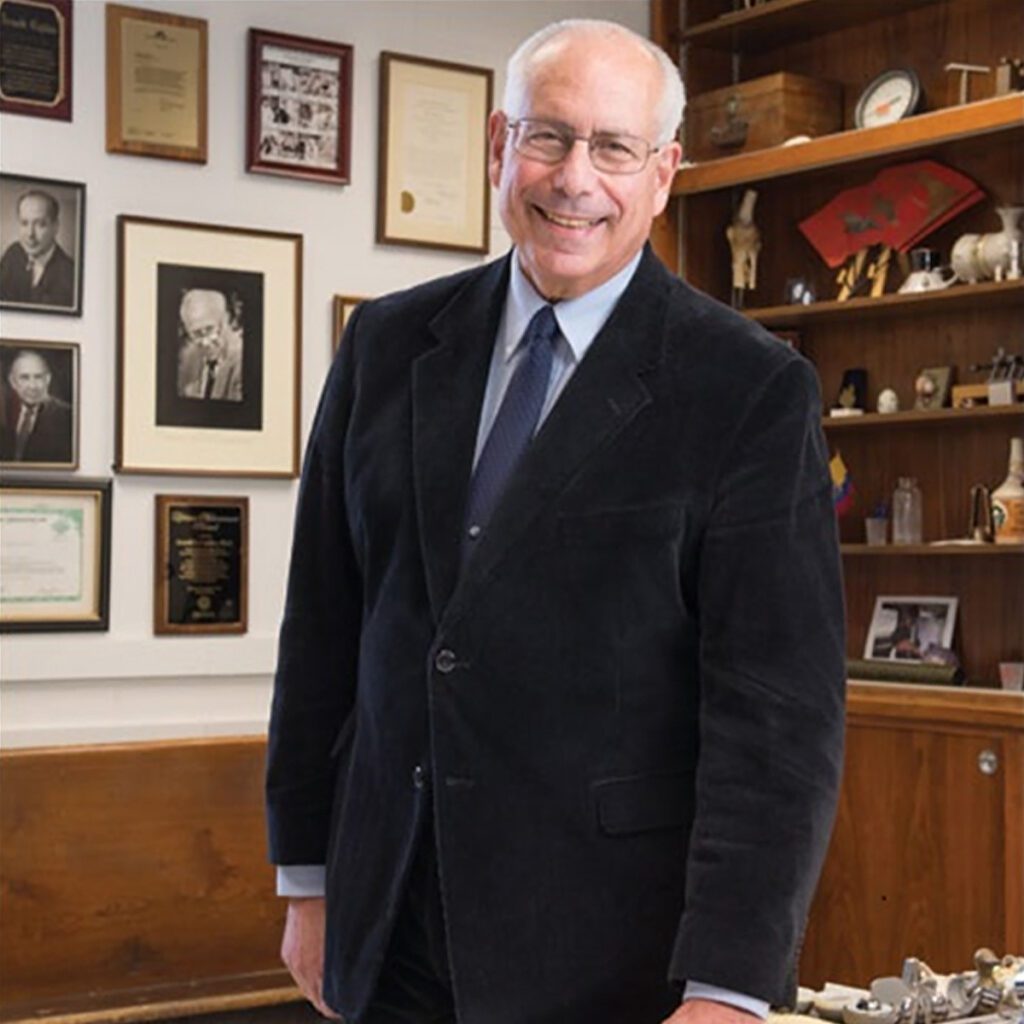
Arnold Caplan Photo. (2023). Case Western Reserve University.
It was with great sadness that RoosterBio’s team members learned of Arnold Caplan’s passing on January 10, 2024. Many knew “Arnie” as the “Godfather of MSCs” a title well-earned by his decades exploring the fundamental biology and translational capabilities of MSCs. While both Dr. Caplan and RoosterBio’s team members care deeply about the science of MSCs, the characteristics that the RoosterBio team and I appreciated about him went beyond the laboratory, including:
1. Dr. Caplan had great perseverance and cared deeply about translating MSCs to the clinic.
Arnold’s passion for improving the lives of patients was evident to anyone he met. Earlier in my career, I attended many orthopedic surgery conferences and Arnold was a regular keynote presenter. He spoke persuasively about the past, present, and future of MSCs and their ability to improve the way orthopedic surgeons treat their patients. His research into MSCs led to the founding of one of the first allogeneic cell therapy companies, Osiris Therapeutics, in March 1993. Osiris received the first regulatory clearance in the world for a systemically administered stem cell drug in 2012 and was acquired by Smith and Nephew in 2019. Not one to settle on doctrine, Dr. Caplan also explored the basic science of MSC technologies that had rapidly advanced into clinical practice but perhaps would benefit from further understanding so that physicians could improve patient care. Dr. Caplan collaborated broadly with scientists and clinicians exploring the role of MSCs in treating a wide variety of conditions including orthopedic, oncology, infection, and inflammatory diseases. Personally, I admired his ability to effectively communicate and marshal people, resources, and efforts, ultimately for the benefit of patients.
2. Dr. Caplan was a critical thinker and visionary for “MSC 2.0” applications.
My guess is that there are not many tissue engineers who have not seen the following slide from Dr. Caplan:
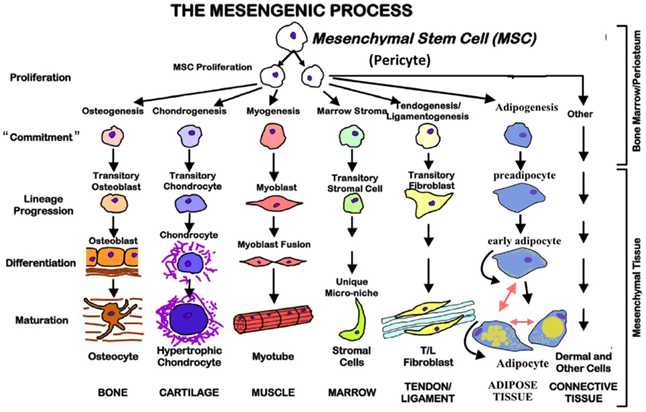
The Mesengenic Process. (2017). Stem Cell Journals.
For the first several decades of his career, Dr. Caplan and his lab explored how MSCs could be differentiated in cell culture down different mesenchymal lineages, which is an enabling concept for those who wanted to do more than just mask symptoms but grow new organs for patients in need. It was this concept that Dr. Caplan and others developed in the 1990’s that inspired me when looking for what would be the “Hottest Jobs” of the 2000’s:
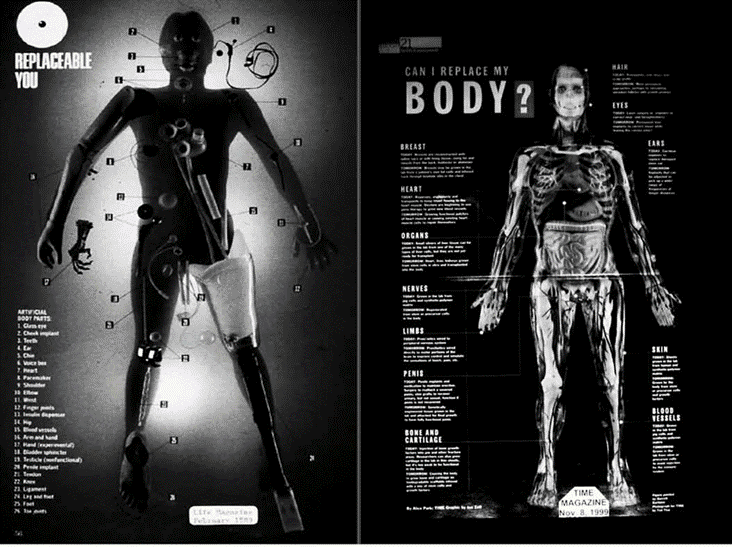
Tissue Engineering: The Beginning. Available at: ResearchGate.net. Accessed January 2024.
However, as scientific and clinical evidence developed, Dr. Caplan recognized that MSCs largely do not differentiate on their own in vivo. He then worked hard to communicate broadly that MSCs were not “Stem Cells” in the true sense and that MSCs are derived from pericytes, which are specialized cells on capillaries and microvessels throughout the body. This observation led to Dr. Caplan coining the phrase that MSCs are “Medicinal Signaling Cells” due to their immunomodulatory, trophic, and regenerative signaling pathways. This change in framing of what MSCs are capable of from primarily orthopedic tissue engineering to immunomodulatory and regenerative functions opened up the possibility of the variety of MSC 2.0 applications that RoosterBio is helping our partners advance into the clinic today. I greatly appreciated the way Dr. Caplan consolidated emerging clinical evidence with fundamental biology studies, updated his interpretation of the data, and effectively communicated this new paradigm – the hallmark of a great scientist.
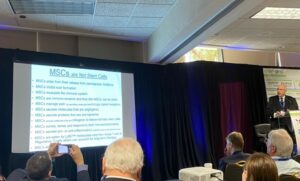
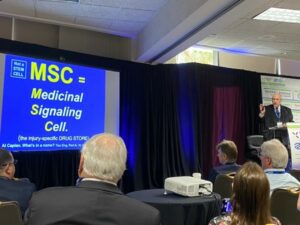
Dr. Caplan speaking at Advanced Therapy Week 2020 – Message, MSCs are not Stem Cells, but Medicinal Signaling Cells
3. Dr. Caplan was generous with his time and knowledge.
Across conversations with fellow “Roosters” and from many LinkedIn posts, a common theme about Dr. Caplan emerges — that he was very generous with his time and expertise. I had the opportunity to ask several questions to him as a graduate student and even had the opportunity to spend the day with him at his Skeletal Research Center at Case Western Reserve University in 2010. During my day with Dr. Caplan, we had wide-ranging discussions on how underlying material substrates change MSC behavior and the role of bioreactors in their scale-up. I had only performed culture in T-225 flasks at the time, and I left the day excited for the potential to get access more simply to billions of MSCs primed for therapeutic application. I know I am not alone in having “Arnie stories” like this. In my personal experience, the MSC community is a fundamentally collaborative group, in the spirit of the founders of our field.
In lectures, I heard Dr. Caplan reference his favorite quote from Winston Churchill: “Now this is not the end. It is not even the beginning of the end. But it is, perhaps, the end of the beginning.” At RoosterBio, we are fortunate to work with so many innovative partners that are building on the cornerstone MSC knowledge built by Dr. Caplan and his lab. We remain committed to another of his axioms: that “the MSC story will change the way medicine is practiced!”
